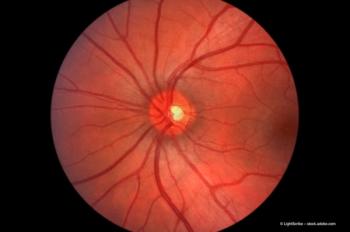
Post hoc analysis of Copernicus, Galileo trials find time since diagnosis affects BCVA outcomes in CRVO
Dr Dilsher Dhoot discusses the post hoc analysis of the Copernicus and Galileo trials, which investigated if a delay in treatment would affect visual acuity gains or change in anatomy.
In Fort Lauderdale, Florida, Dr Dilsher Dhoot gave a presentation: “Effects of Time Since Diagnosis to Intravitreal Aflibercept Injection and Baseline BCVA on Outcomes in CRVO: Post Hoc Analysis of the COPERNICUS and GALILEO Trials.” The study found that treatment soon after diagnosis resulted in better visual acuity gains.
Video transcript
So we did a post hoc analysis of the Copernicus and Galileo trials. These are the Phase 3 registration trials for macular oedema in central retinal vein occlusion.
In this trial, patients are randomized to receive either aflibercept or sham injection. Aflibercept patients were treated every four weeks for 24 weeks, at which point primary end point, which was loss of three lines or more, was read out.
In this post hoc analysis, we were very interested to see if a delay in treatment resulted in differences in anatomy or visual acuity gains. And so patients were divided into one of three groups: patients who were enrolled in the trial within one month of diagnosis, one to three months of diagnosis, or greater than three months from diagnosis.
So the interesting part of this trial was that there was visual acuity differences. Patients who had the best visual acuity gains were those patients who were treated within one month of their diagnosis, compared to those patients who were treated after three months of diagnosis were the worst visual acuity cases. Interestingly, their anatomy was the same. So the anatomy improved in all groups, and there was no difference.
The second part of this analysis was looking at baseline visual acuity. And the baseline vision acuity had any bearing on final visual acuity. And in fact, those patients with the best baseline visual acuity have the greatest vision at the end of the trial. The greatest gain was in those patients with the worst baseline visual acuity. And this may have to do with ceiling effect. But it turns out that their final visual acuity were not as good as your counterparts who started off with good vision.
And so I think this trial provides information for our patients and physicians and helps manage expectations; namely, that if a patient is seen with macular oedema secondary to central retinal vein occlusion, it really is important to get started on treatment right away.
Note: This transcript has been lightly edited for clarity.
Newsletter
Get the essential updates shaping the future of pharma manufacturing and compliance—subscribe today to Pharmaceutical Technology and never miss a breakthrough.




























